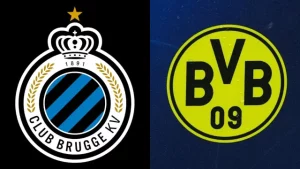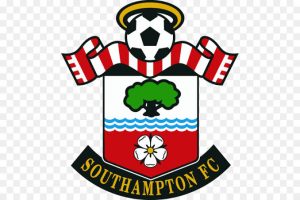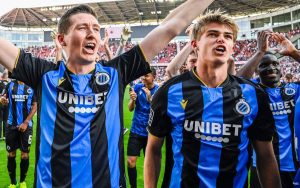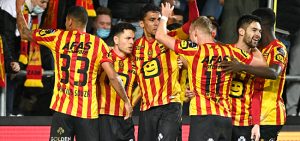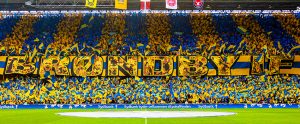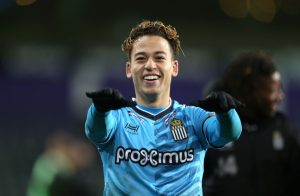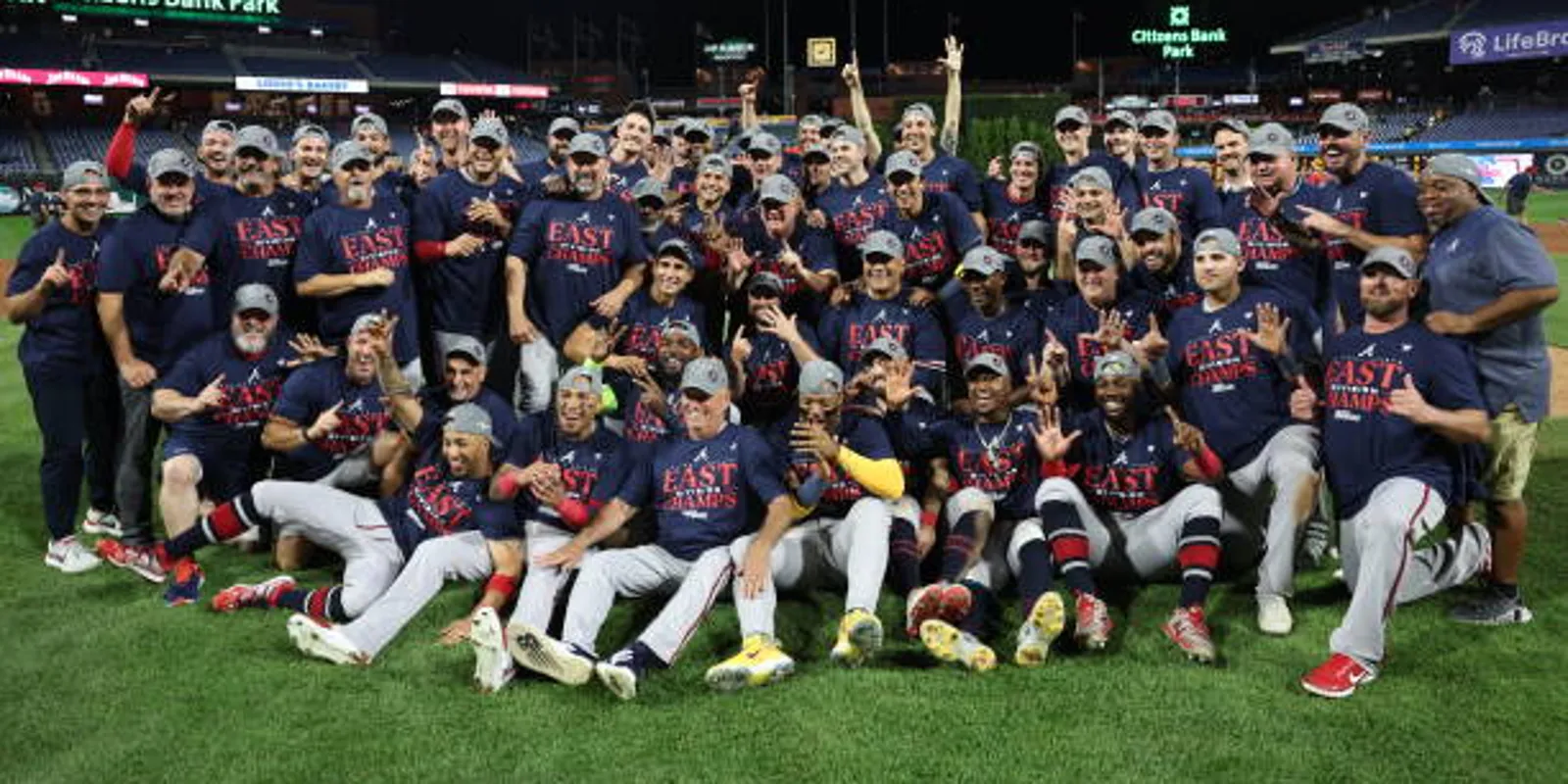
Atlanta Braves reach 100 wins for second straight season
WASHINGTON — Spencer Strider earned his major-league-leading 19th win and the Atlanta Braves got their 100th victory of the season Sunday night by defeating the Washington Nationals 8-5 for a doubleheader split.
Kevin Pillar and Forrest Wall homered, and Orlando Arcia drove in three runs for Atlanta (100-56), which has won 100 games in back-to-back seasons for the first time since 2002-03.

“It’s unbelievable,” Braves manager Brian Snitker said. “It’s hard to do. I think it’s quite an accomplishment anytime you can win 100 games. A lot of things we’re doing are really hard. It’s taken the whole room in there, that’s for sure, to make something like that happen.”
Luis García and Lane Thomas homered for last-place Washington, which dropped three of four in the series and has lost nine of 13 overall.
In the opener, rookie Jackson Rutledge earned his first major league victory as the Nationals won 3-2.
Strider (19-5) pitched 5⅔ innings and yielded four runs on seven hits, including García’s solo shot in the sixth. The right-hander struck out four to give him 274 for the year, two shy of John Smoltz’s 1996 single-season modern franchise record.
“We executed some pitches and they hit them, and we didn’t execute some pitches and they hit them,” Strider said. “I wasn’t very good. I need to be better, and I have one more start to tune it up.”
Washington scored three runs in the third inning off Strider when Keibert Ruiz hit a two-run double and scored on García’s single two batters later.
Atlanta quickly erased the deficit. Matt Olson and Arcia hit RBI doubles in the fourth against Nationals starter Joan Adon (2-4), with Arcia coming around on Pillar’s drive to left.
Adon gave up four runs and struck out five in 4⅔ innings.
Wall’s two-run shot to right off Jose A. Ferrer in the sixth made it 6-3. It was his first big league home run. Arcia added a two-run single in the seventh.
Thomas lifted his 27th home run of the season to left off Raisel Iglesias in the ninth.
In the first game, Rutledge (1-1) allowed a run over five innings in his third career start while combining with three relievers on a six-hitter.
“It just tells me that I belong here, that I can do it against one of the best records in baseball, one of the best lineups in baseball,” Rutledge said. “That I’m able to have success, it gives me confidence going forward.”
Jacob Young had two RBIs for Washington.
Sean Murphy hit a broken-bat home run in the ninth off Kyle Finnegan, who then retired Eddie Rosario for his 27th save
Allan Winans (1-2), recalled from Triple-A Gwinnett, allowed two runs and seven hits in five innings. He struck out six in his fifth start for the Braves.
Kyle Wright, who led the majors with 21 wins last season but has been limited to seven starts this year because of shoulder issues, allowed a run over three innings in his first relief appearance since 2019.
“I still believe in myself,” Wright said. “I know the results have been a little tough, but I was really happy with the way I threw the ball today. I thought the command was pretty good and I executed in general, for the most part.”
MLB Playoffs 2023: Questions for ALCS Game 7, NLCS Game 6
It’s elimination Monday in the championship series round of the 2023 MLB playoffs.
First, the Arizona Diamondbacks will attempt to stay alive against the Philadelphia Phillies as the National League Championship Series shifts back to Citizens Bank Park for Game 6. Then, it’s time for the two best words in sports: Game 7! This time, it’s Texas style, with the Texas Rangers and Houston Astros meeting one more time with a World Series trip on the line in the American League Championship Series.
To get ready for all of the excitement in Philly and Houston, we asked the ESPN MLB experts covering these series to answer the biggest question for each team vying to make it through to the Fall Classic.
Arizona Diamondbacks vs. Philadelphia Phillies
NLCS Game 6, 5:07 p.m. ET (Merrill Kelly vs. Aaron Nola)
What can the D-backs do to avoid being overwhelmed by the atmosphere in Philly?
David Schoenfield: Well, the easy answer is to score in the top of the first inning and then keep the Phillies off the board in the bottom of the first. In Game 1, Kyle Schwarber and Bryce Harper homered in the first inning. In Game 2, Trea Turner homered in the first off Merrill Kelly, who gets the ball again in Game 6. But the noise is going to be there regardless.
If there is a key for the Diamondbacks, I’m looking at Corbin Carroll. He’s just 2-for-19 with one walk in the series, and after going 54-for-59 in stolen bases in the regular season, he hasn’t attempted a steal in the NLCS. He needs to get on base and needs to be aggressive. The Diamondbacks aren’t going to win two games here playing it safe.
Jeff Passan: Get back to who they are. During the regular season, the Diamondbacks’ offense thrived when it dared opponents to stop its running game. So far in the NLCS, Arizona has swiped just one bag — by Lourdes Gurriel Jr. in Game 3. Neutralizing Arizona’s base-stealing presence — especially from Corbin Carroll, who took 54 bags in the regular season — has been a priority of the Phillies and one they’ve executed well, from their pitchers’ fast times to the plate and quickened deliveries to the play of Phillies catcher J.T. Realmuto, whose pop times are the best in the big leagues.
The Diamondbacks usually won’t outslug the Phillies, so when they get runners on, they need to do their best to beat Philadelphia and better embody the word they’ve embraced all year: chaos.
Jesse Rogers: Learn from Games 1 and 2. It has to mean something having been through it already. Really, it all comes down to Merrill Kelly. The D-backs have been down early in games way too often in this series. This isn’t the Milwaukee Brewers they’re playing here. Kelly has to give them three to five solid innings in Game 6, and then Arizona’s lefty relievers simply have to shut down some of the best left-handed sluggers on the planet. If ever the cliché “one inning at a time” applies, it’s now. And it starts with Kelly.
How should the Phillies set up their bullpen for the rest of this series?
Schoenfield: It seems pretty clear that Craig Kimbrel has probably pitched himself out of high-leverage situations. It’s not just that he lost Games 3 and 4 with poor outings, but even including four earlier scoreless appearances in the postseason, he has induced just nine swinging strikes out of 111 pitches, a very low total for a high-leverage reliever. Rob Thomson still has plenty of good options, though, and he’ll rely on Jeff Hoffman and lefties Matt Strahm and Jose Alvarado as his top three guys, with Seranthony Dominguez and Gregory Soto as deeper reserves. That’s still a lot of depth to deploy.
Thomson should use Alvarado and Hoffman against the top half of the order, matching up lefties with Carroll as he’s been doing, and use them as needed based on the situation and allow Strahm or Soto to close if necessary. A good manager is flexible with the bullpen, and Thomson should proceed with closer-by-committee at this point. That group has been good this postseason: In 25 innings, just one home run and five runs allowed.
Passan: With duct tape and superglue. Yes, Kimbrel and Orion Kerkering would be going on two days’ rest if they take the mound in Game 6, but does Rob Thomson trust either? If not, it’s likely going to be the Aaron Nola Show for as long as possible, with Hoffman entering if a leverage situation reveals itself early — Thomson has used him in a fireman role — and likely a heavy dose of Alvarado in the late innings.
Thomson seems to trust left-hander Strahm and right-hander Dominguez, so if he needs to match up, he’s got options. But the prospect of throwing Taijuan Walker or Michael Lorenzen for the first time this postseason in Game 6 of the NLCS seems reserved for only if they’re behind and need innings eaten to preserve those in the circle of trust for a potential Game 7. Ranger Suarez, the projected starter for a Tuesday game, is not an option out of the bullpen in Game 6, Thomson said Sunday.
Rogers: Unlike the Diamondbacks’ bullpen, the Phillies don’t have to play the matchup game all that often. Other than perhaps making sure Carroll faces Alvarado or Strahm, Thomson can deploy his righties as he sees fit while staying away from Kimbrel. And frankly, if there’s a time to send Walker or Lorenzen to the mound, it should come in Game 6. Not that the Phillies can mess around, but it seems like Thomson has missed an opportunity or two to utilize them so far. He wouldn’t have that luxury in a win-or-go-home Game 7, but with a one-game cushion, it’s a possibility — especially if Aaron Nola has a shorter-than-expected start. Kerkering could probably use a high-leverage moment off as well. Otherwise, it’ll be Hoffman, Dominguez, Strahm and Alvarado to bring home the pennant.
What will be Bruce Bochy’s plan for his pitchers?
Bradford Doolittle: Nathan Eovaldi getting into the seventh on Sunday was huge as it allowed Bruce Bochy to deploy his standard late-inning contingent without overextending any of them. Now for Game 7, he hopes to do the same thing — only the path from Inning 1 to Inning 7 is likely to be less clear than letting Eovaldi roll three times through the Houston lineup. Max Scherzer will be on a short leash, and even if he’s on — around his typical velo, with a better slider than in Game 3 — you’d think 80-85 pitches would be his ceiling.
Bochy has a number of rested options to get from Scherzer to his high-leverage crew. Sorting out who matches up best with who, well, that’s an open question, but it’s one that Bochy has answered correctly so many times during his playoff career. If Scherzer’s outing is short, then it gets dicey and Bochy will have to get multiple innings from someone, whether it’s Cody Bradford, Martin Perez, Jon Gray or somebody else. Gray, for one, is someone I thought might play a little more of a role than he has in the ALCS, so maybe Game 7 will be his time.
Alden Gonzalez: That top of the ninth, when Adolis Garcia hit the grand slam that sent Astros fans filing for the exits, was one of the best things that could have happened for the Rangers — it meant Jose Leclerc didn’t have to return for the bottom half to record three more outs. It has become increasingly clear as this postseason has played out that Bochy doesn’t trust much of his bullpen. It was never more evident than in Game 6, when he had Eovaldi begin to tackle the Astros’ lineup a fourth time and then turned to Josh Sborz and Leclerc for the rest of the game (not even using Aroldis Chapman to face Yordan Alvarez). Leclerc and Sborz will probably be counted on heavily again in Game 7. And if the Rangers need a big out against Alvarez, it’ll be interesting to see whether Bochy turns to fellow lefty Jordan Montgomery, who started Game 5 — recording 16 outs and throwing 82 pitches — but could technically make a relief appearance rather than his typical between-starts bullpen session.
Buster Olney: It’s true, the circle of trust for Rangers manager Bruce Bochy seems to be small, and what occurred in Game 6 really sets him up well to respond if Scherzer struggles. If he needs to summon a reliever mid-inning, maybe he calls on Sborz. If he needs a reliever to face Kyle Tucker, maybe that’ll be Chapman. If he needs multiple innings, he could give Jordan Montgomery the ball at the start of an inning after Scherzer departs. And it seems Bochy will not hesitate to use Leclerc for three to six outs, either — and keep in mind that no manager has manipulated a bullpen with more success over the past 15 years than Bochy.
Can the Astros turn around their offensive woes at home?
Doolittle: They can — but their home offensive woes don’t really make any sense, so who knows? There are a lot of struggling hitters in Houston’s lineup right now, which makes it a lot easier to navigate if you can survive the Jose Altuve-Alex Bregman-Alvarez gauntlet. I’m guessing we’ll see a tight game that will be decided by two or three key sequences, as most postseason games are. But these being the Astros, would we really be shocked if they hang five runs on Scherzer right off the bat and roll on from there? I just don’t think Houston’s bizarre home-road inversion is anything more than an interesting fluke. Still, the way these teams are coming out of Game 6, the Rangers seem more explosive right now. Houston needs to change this narrative, whether it’s real or not.
Gonzalez: It’s more so about certain hitters getting right for the Astros — and nobody represents that better than Kyle Tucker, who will get some down-ballot MVP love this year but has struggled mightily throughout the postseason, with five hits in 35 at-bats and one RBI through 10 games. Tucker, Jeremy Pena and Martin Maldonado — the Nos. 6, 8 and 9 hitters in the Astros’ Game 6 lineup, respectively — have combined to slash .165/.277/.206 in these playoffs and have accumulated eight hits in 56 at-bats in this series, only two of them for extra bases. The Astros need more production from the bottom half of their lineup. But Tucker is the one who can change the dynamic of their offense. And one at-bat in Game 6 might have provided a window into his confidence at the moment. There were runners on first and second with none out, with the Astros trailing by two, and Tucker squared to bunt for a hit on the first pitch from Eovaldi, whom he had already seen twice. The next pitch produced a half-swing that resulted in a harmless ground out. This is far from the Tucker who surged through the summer — but it can turn at any minute.
Olney: Scherzer believes that his slider was better than portrayed in Game 3, but the bottom line is that if he does not have that pitch, he will be extremely vulnerable to the Houston hitters, who figure to be very aggressive against him. Regardless of Scherzer’s feel, the Rangers will be very wary of Altuve, Bregman and Alvarez, so there will likely be some opportunity for those who follow them: The key hitters in this lineup might turn out to be Jose Abreu and Tucker. Tucker has gotten some hits and drawn some walks in this series, but he hasn’t looked at all close to the sort of confident, dangerous hitter that he was during the regular season. As Dusty Baker has said, that could all change with one swing.
Orion Kerkering embodies the historic, chaotic Philadelphia Phillies
ORION KERKERING CAST a furtive glance around the clubhouse. His teammates — this lot of Philadelphia Phillies who had been his teammates for a grand total of three weeks — were consumed with the work ahead of dispatching the Braves in Game 4 to clinch the National League Division Series, or just otherwise engaged in pregame rituals, and they paid him no mind. He tugged open the plastic bag and double-checked its contents. Satisfied, he squirreled it away in his locker for safekeeping. His time, and the time for the contents of that bag, was coming.
The fact that these teammates were his teammates was silly. That this locker was his locker, illogical. That the contents of that bag, which he had commissioned barely 12 hours ago, were his to commission at all, downright asinine. Six months ago, he took the mound in Low-A ball in Clearwater, Florida. Low-A! And here he was, suiting up in Philadelphia. In the majors. In October. (Philadelphia! The majors!
So roughly four hours later — with the Atlanta Braves duly dispatched and the NLDS safely clinched — when he nudged his clubhouse neighbor and fellow bullpen mate, Jeff Hoffman, smiled with an air of mischief and told him, “Hey, man, look at this,” well, it made as much sense as anything else in this nonsensical year.
The way Hoffman tells it, Kerkering giggled almost like a grade-schooler at what he had done. Fittingly, perhaps, since he’s only 22 and not that far removed from grade school. (He was in grade school, in fact — just 9 years old — when his now-teammate and Phillies closer, Craig Kimbrel, made his major league debut in 2010.)
Hoffman smiled back at Kerkering. “Wow,” he told him. Atta boy, he almost said, which is also fitting. Because Orion Kerkering, a Phillie for 20 days, had made a T-shirt commemorating that sentiment exactly.
In maroon, against a powder blue backdrop on the front: “ATTA BOY HARPER”
On the back: “HE WASN’T SUPPOSED TO HEAR IT”
With help from a college friend and Philadelphia local who made the shirt on about a half day’s notice, Kerkering had memorialized Orlando Arcia, the Brave who launched a thousand Bryce Harper stare-downs. Specifically, the Atlanta shortstop’s dig and subsequent about-face at Harper’s Game 2-ending baserunning blunder. And Hoffman loved it.
“When you win, you can do whatever you want,” Hoffman says. “At least that’s how we look at it here.”
And the Phillies did win, with a hint of bedlam and utter lack of orthodoxy, as is their wont. So with the clubhouse draped in celebratory plastic and geysers of celebratory Budweiser arcing through the air, Kerkering finally put on his shirt. Phillies third baseman Alec Bohm double-fisted a pair of beer bottles and poured them all over it. Kerkering paid it forward, dousing Kyle Schwarber with the beer he’s barely old enough to drink legally.
His path to this beer bath was a little frenzied and more than a little unexpected — which on this particular team, with this particular group of players, somehow feels just right.
The Phillies simply do not do normal. They send the unlikeliest leadoff hitter in baseball to the plate; Schwarber is shaped like a fire hydrant and on many nights, either fires moon shots into the Philadelphia evening or whiffs entirely. Their lineup can boggle the mind; Nick Castellanos, their $100 million slugger, has mostly taken up residence in the 7-hole for over a month now. They can launch (and launch and launch) home runs all the way to the Delaware River, but can forget, for seeming eternities, how to make bat meet ball with runners in scoring position. And they can look like a very good team for 162 games, only to hulk out when the calendar flips to October and there’s a nip in the air.
They are perfectly imperfect. A chaotic mess. A beautiful symphony.
Orion Kerkering — and his chaotic, symphonic climb to the highest level of baseball — fits right in.
PERHAPS IT SHOULD be no surprise, then, that by the seventh inning of Game 1 in the National League Championship Series, a healthy number of Phillies fans and armchair Toppers the Philadelphia region wide were agitating to replace their ace with a pitcher they hadn’t heard of three weeks before.
Starter Zack Wheeler had, by and large, breezed through six innings against the Arizona Diamondbacks, helped steward a 5-2 Phillies lead, then handed the ball to the bullpen. And though Kerkering did not get the nod that night, the clamor was still a dizzying turn of events for a man who currently calls a hotel in Philadelphia’s Navy Yard home.
He’s living out of a suitcase he packed last month, with enough clothes — some shirts, some pants; “I’m not a big stylish guy,” he says — for the final week of the Reading Fightin Phils’ season, plus a sightseeing trip to Gatlinburg, Tennessee, with his girlfriend. They pushed back their plans when he got the call to head to Triple-A — then that pushback got pushed back when, four nights and one game into his stint with the Lehigh Valley IronPigs, he got summoned to Philadelphia on a late-September Friday around noon. He had planned to get a haircut that afternoon; instead, he battled midday traffic from Allentown to Philadelphia, dropped his belongings at the hotel, then hightailed it to Citizens Bank Park in case he needed to pitch that night. (He didn’t, but would two days later.)
Since that Friday when his fall turned topsy-turvy, Kerkering has made:
- His major league debut, on Sept. 24, a 1-2-3 eighth inning against the Mets.
- His postseason debut 10 days later, a 1-2-3 eighth inning against the Marlins.
- His NLDS debut three days after that, a 1-2-3 seventh inning against the Braves’ historically potent offense.
- His NLCS debut a week after that. He allowed one hit, served three strikeouts and looked generally filthy in the ninth inning to close out Arizona in a 10-0 laugher.
Kerkering’s swift ascension to these playoffs makes a meteor’s pace seem glacial. To wit: Since 1992, according to Stats Perform, he’s just the second player to pitch in Low-A, High-A, Double-A, Triple-A and the major league postseason.
And though he finally looked the part of a rookie by the heart of the NLCS — he gave up three straight hits and the game-tying run in the Phillies’ Game 3 loss; he delivered a bases-loaded walk before closing out the seventh inning in Game 4 — Kerkering swears he has never been cowed by the moment or the enormity of what he has done since late September. Instead, shell shock took hold when he passed a Bryce Harper or a Kyle Schwarber or a Trea Turner. Or a Nick Castellanos or Aaron Nola or Zack Wheeler. He rattles off what feels like half the roster, recounting how he’d see them in the clubhouse, realize they were his teammates, then laugh to himself about it all. “A little-kid kind of moment,” he says, a bit sheepishly, now that the bewilderment has faded and he’s a seasoned veteran of 20-plus days.
Which is pretty much what his teammates make him out to be, on the mound at least — a seasoned veteran — a distinction they also say he comes by honestly.
“If I had his stuff, I’d be pretty mellow too,” says pitcher Michael Lorenzen. “I’m telling you. It’s that good.”
A popular refrain, by all counts. J.T. Realmuto, Philadelphia’s longtime catcher, heard it early this year, and often.
“To be honest, I’ve been hearing about him and his stuff since May,” he says. “Every time I asked any minor league coach, ‘Hey, what do we have coming?’ He was the first one they always mentioned.”
So is it enough, his devastating slider and the aura of inevitability that trails in that slider’s wake? Can Kerkering be a secret weapon and a fittingly unorthodox puzzle piece for this unorthodox team in the throes of another October run?
“100%,” Lorenzen says. “100%. He’s going to throw a lot of important innings. Everyone’s going to know who he is at the end of this. Everyone will.”
IF EVERYONE DOES know who Kerkering is at the end of this, it’s a tale that’s especially apropos told here. Philadelphia falls hard for chaos to call its own.
One day before he turned Arcia’s words into a fashion statement, he strode into Citizens Bank Park for Game 3 against the Braves wearing someone else’s eloquence.
“If you don’t get it, then get the f— out of Philly,” said Phillies backup catcher Garrett Stubbs, by way of postseason hype video. Stubbs’ exuberance wound up printed on T-shirts. The T-shirts wound up on a table in the clubhouse, up for grabs for interested parties. Kerkering saw them, snagged one for himself — if nothing else, he was still getting by on his two weeks’ worth of clothes, and an extra tee could prove handy. Then, caught up in the team’s emotional roller coaster of a start to the series against the Braves, he figured the Phillies’ first NLDS game at home was a fine time to showcase it.
So what don’t people get, exactly, about Philly? These people who need to get the f— out?
“Just how passionate we are,” Kerkering estimates. We, he says, this Venice, Florida-raised Phillie who has called Philadelphia (or at least a hotel room in Philadelphia) home for a month.
Philadelphia has fallen hard for Kerkering because of his wardrobe choices, his ridiculous slider and his rapid-fire rise to the top of the baseball food chain. And because of his father, Todd, who stumbled into his own bit of viral fame after he was caught on the TV broadcast overcome with emotion during Orion’s regular-season debut.
When the cameras caught Todd choking up, he wasn’t just watching his son take the mound in Philadelphia. He was watching him take the mound when he was 6, and 10, and 14. He was watching him at 7, getting ready for fall ball. Orion’s coach at the time assembled his team and asked the players: “Who can play what position?” Orion’s response was immediate and resolute: “I can play them all.”
Todd is a former Marine and has long tried to pass down the lessons he learned from his service to his son. “Be the silent professional,” he starts. “Be patient. Slow is fast.”
They’re lessons that Orion has not heeded, at least not in his baseball career. But the Marines also taught Todd to maintain a sense of humor, lightheartedness and joy. So he smiled, too, at his son’s willingness to play to the Philly masses with his pointed fashion choices.
Among those Philly masses are a couple of his old Marine Corps friends. They texted him in recent days: “Everyone loves your kid.”
“For right now,” Todd wrote back.
Both Kerkerings, it seems, are quick studies in the art of playing in Philadelphia, and for these Phillies. And all their attendant chaos.
Texas Rangers add chapter to ‘intense’ series, force Game 7
The Rangers force Game 7 of the American League Championship Series behind a dominant nine-run display vs. the Astros. (2:18)
HOUSTON — Adolis Garcia stood at home plate to watch his ninth-inning grand slam soar toward the Crawford Boxes in left field at Minute Maid Park on Sunday night, and in that moment, the perspective of everyone in the building seemed to shift.
The Texas Rangers players could exhale, having taken control of a tense Game 6 that they would go on to win 9-2. Houston Astros fans immediately flooded the aisles to get out of the ballpark. And Astros players made three outs on four pitches in the bottom of the ninth inning, perhaps in a hurry to move on to the deciding Game 7 of an American League Championship Series that has been wholly dominated by the visiting teams.
The home team has lost every game in this series. The only other time that has happened in the first six games of a best-of-seven series in MLB history was in the 2019 World Series — which was lost by the Astros and won by the Washington Nationals, whose Game 7 starter will be the same guy who will start Monday night for Texas, Max Scherzer, the three-time Cy Young Award winner.
Nathan Eovaldi started for the Rangers in Game 6 and lived up to his long history of postseason success, allowing two runs over 6⅓ innings and becoming only the third pitcher ever to collect eight wins in his first 10 postseason starts. (David Wells and Orlando Hernandez were the others.) Mitch Garver and Jonah Heim hit homers for the Rangers before Garcia finished off the Astros in the ninth and spun the attention of everyone to what’s ahead.
When Rangers players spoke late Sunday in anticipation of Game 7, it was as if uttering Scherzer’s name alone carried the weight of implied excellence.
“Max Scherzer, Game 7,” Texas catcher Jonah Heim said.
“Mad Max,” said Marcus Semien, the Rangers second baseman who reached base four times on Sunday.
The Astros’ Cristian Javier threw the bulk of a no-hitter in the World Series last year. This year, he will start the Game 7 that Houston needs to have a chance to win back-to-back championships; he has been throwing the ball effectively in recent weeks, gaining command of his fastball.
Scherzer is coming off a rough start in Game 3, when he allowed five runs in four innings. His fastball had life in that game, reaching 95 mph, and Scherzer had a good curveball. But his slider, a pitch that has long been his go-to selection to finish off hitters when he’s ahead in the count, betrayed him in that start. Rangers manager Bruce Bochy said after Game 6 that Scherzer has felt good in his side session and is hopeful that the slider will be better.
“I think he’ll be well prepared and learn from last time,” Semien said of Scherzer. “That lineup was attacking him. I’m sure his arm gets better and better as time goes on. I’m excited to see how he bounces back.”
Scherzer joined the Rangers’ postgame celebration on Sunday briefly before escaping the clubhouse without speaking with reporters. Texas officials announced that Garcia would not be available.
The Houston pitching options in Game 7 could be complicated by the looming enforcement of a two-game suspension for reliever Bryan Abreu, who is an important setup man for Astros manager Dusty Baker. Abreu was suspended for hitting Garcia with a pitch in Game 5. About an hour before Game 6, Abreu appealed that suspension, and the case will be heard on Monday, presumably before the start of the night game. It’s possible that if Abreu loses his appeal — or even if the suspension is reduced to one game — he will not be available for Baker.
“That could be a huge blow,” Baker said. “I thought about using him two innings today, had the decision been made. But you’d hate to have the fine and the suspension go past tomorrow, and then I wouldn’t have had Abreu tomorrow, had he gone two innings.
“So you wish you had a decision. You wish you had some final decision about his status. So we took a shot there. Hopefully, some of this will be postponed and we’ll have him tomorrow, as well.”
Texas’ bullpen options, on the other hand, could be enhanced. Jordan Montgomery, the Rangers’ reliable left-hander, will be available, according to sources, and a barrage of ninth-inning runs reduced the workload of Texas closer Jose Leclerc in Game 6.
With Texas leading 3-2 in the seventh inning, Bochy relieved Eovaldi.
“The makeup of this man, it’s amazing,” Bochy said of his starter. “He wants to be out there in a game like this. He has great stuff, four pitches. He’s got really good focus, maniacal focus on every pitch.”
Texas added a run in the top of the eighth, and with the Rangers protecting a 4-2 lead in the bottom half of that same inning, Leclerc was summoned for a possible five-out save, and he snuffed out the rally by striking out Jon Singleton with the bases loaded.
In the top of the ninth inning, however, the Rangers piled on five more runs, with Garcia — who was booed all night by Houston fans after his role in the bench-clearing incident in Game 5 and struck out in his first four plate appearances on Sunday — burying the Astros with a grand slam.
When Garcia’s ball landed to stretch the Rangers lead to 9-2, Bochy suddenly had the flexibility to remove Leclerc, after just 16 pitches. Andrew Heaney took over and got three outs on four pitches to the dispirited Astros, who continue to struggle at home.
If Houston prevails in Game 7, the Astros will be the first team in history to reach the World Series after having lost more than half of their home games. If Texas wins, the Rangers will make their first appearance in baseball’s championship round since 2011.
“It’s been entertaining with me,” Bochy said of the series. “It’s intense. There’s no getting around it. People ask you, ‘Are you having fun?’ Yeah, it’s fun, you try to enjoy it, but it’s intense out there. That’s what I came back for, to be in this situation. It’s exciting.”
As Garver explained, “I said it in August, it’s going to be a dogfight all the way to the end. Really, really good ball club on both sides. They have pitching. They have hitting. But so do we. It’s one game to settle it all, and I think everyone is excited for that.”
Corey Seager has played in Game 7s before, with the Los Angeles Dodgers, and he didn’t hesitate when asked what he would tell his young teammates about playing in a Game 7. “That they’re a lot of fun,” he said. “They are. That’s what you want. One game to decide who’s going to win.”
Who’s going to win, who will lose, who will be home Tuesday wondering about what might’ve been.
Sources: Padres grant permission for Bob Melvin, Giants interview
Giants president of baseball operations Farhan Zaidi discusses the conversations he had with Gabe Kapler after letting the manager go. (1:17
The San Diego Padres granted permission for manager Bob Melvin to interview with the San Francisco Giants, sources told ESPN, paving the way for an interdivision managerial change and the end of a contentious two-year relationship between Melvin and the Padres.
While league sources believed the idea of Melvin emerging as the top candidate in San Francisco was logical, the rarity of one manager jumping to a division rival while still under contract dampened the possibility. Granting permission makes Melvin the clear favorite for the San Francisco job, though because he’s still under contract with the Padres for one year at $4 million, the team could pursue compensation if he is the Giants’ choice to replace Gabe Kapler.
The Padres said in early October they intended to retain Melvin and general manager A.J. Preller, even after the slow fracture of their partnership as the Padres’ near-$250 million roster produced 82 wins and a third-place finish in the National League West. Melvin’s arrival in October 2021 had been seen as a coup for the Padres, as he left his job — while still under contract with the Oakland A’s — after 11 seasons, with an 853-764 record and six playoff appearances. Trust between him and Preller never developed, and sources believed their relationship was beyond repair despite the public proclamation that both would return for the 2024 season.
“From my standpoint, a lot’s been overblown,” Preller said when announcing his and Melvin’s return. “There are reports we don’t speak, and we’re talking four or five times a day. Personally, we have a friendship. All those things, I don’t put a lot of stock into the unnamed reports and sources and stories that are out of context. I think it’s really hard to comment on those things unless you have real specifics and details and names attached to those things.
“Bob is our manager,” Preller added then. “He’s going to be our manager going forward. A lot’s been said, obviously, in the last few weeks, but both he and I are very excited about the challenge of getting this group back to the postseason next year. From that standpoint, a lot’s been said, and I think with Bob and myself, I think, just even in the last couple days, you get a chance to recap and look at some different things, and both of us feel really good with where things are at moving forward.”
The Giants’ request for permission to talk with Melvin, first reported by The Athletic, came early in the week, sources said. Were Melvin — who has also previously managed Seattle and Arizona and has a career record of 1,517-1,425 — to be hired, it wouldn’t be the first time a Padres manager under contract left for San Francisco. After 12 seasons as San Diego manager, Bruce Bochy absconded to San Francisco, where he won three World Series.
San Francisco has been unable to recapture its glory days since Bochy, now managing the Texas Rangers in the American League Championship Series, retired and was replaced by Kapler before the 2020 season. The Giants fired Kapler on Sept. 29, three days before the end of a 79-83 season that wasn’t as disappointing as the Padres’ but saw attendance flatline. It was the second consecutive mediocre season after an NL West-winning 107-55 campaign in 2021.
San Francisco had already talked with internal candidates, including bench coach Kai Correa, third base coach Mark Hallberg and assistant coach Alyssa Nakken, who became the first woman to interview for a major league managerial position. If Melvin does go to San Francisco, he is expected to receive relative autonomy in filling out his staff, with only a few coaching holdovers certain, sources said.
San Diego, with a star-filled lineup that includes Juan Soto, Manny Machado, Fernando Tatis Jr. and Xander Bogaerts, would immediately become the one of the more attractive jobs available. Should Melvin leave, the new manager would be the fourth full-time hire for Preller since he joined the Padres in 2014. Two internal candidates are likely to receive significant consideration, sources said: senior adviser Mike Shildt and bench coach Ryan Flaherty.
Shildt, 55, is a former St. Louis Cardinals manager who joined the Padres before the 2022 season. In his 3½ years running the Cardinals, he went 252-199 with playoff appearances in each of his three full seasons. St. Louis surprisingly fired him following the 2021 season, in which it went 90-72 and lost in the NL wild-card game. Flaherty, 37, spent eight years as a major league utilityman and was promoted to bench coach and offensive coordinator before 2023 after spending the previous four years as a quality-control coach.
While rare, managers have jumped to division rivals still under contract. The most recent occurrence followed the 2012 season, when Toronto Blue Jays manager John Farrell went to the Boston Red Sox. As compensation, the Red Sox sent infielder Mike Aviles to Toronto, which traded reliever David Carpenter back to Boston.
Currently, three teams in addition to San Francisco are looking for new managers: Cleveland, where Terry Francona stepped away from managing; the New York Mets, who fired Buck Showalter; and the Los Angeles Angels, who declined the option on Phil Nevin’s contract for 2024.
Milwaukee manager Craig Counsell, regarded as one of the game’s best, could hit the open market, too, with his contract set to expire at the end of the month.
